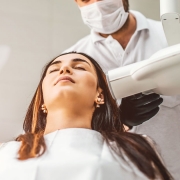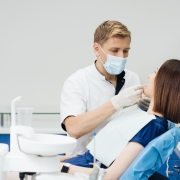Prevent Gum Disease Forever
Gum disease might start quietly, but it can lead to major problems if left untreated. Redness, bleeding, or swelling in your gums may not seem urgent at first—but these early symptoms can lead to tooth loss and even affect your overall health. Full-mouth rehabilitation in Scottsdale, AZ is available at Dr. Pete N. Mellas, DMD. But with a few smart habits, you may prevent gum disease from taking hold and protect your smile for life.
Brush, Floss, and Stick to the Basics
It all starts with the basics. Use a soft-bristled toothbrush and a fluoride toothpaste, and be sure to clean along the gumline. Flossing removes plaque and food particles from between teeth—places your toothbrush can’t reach. Skipping floss regularly gives bacteria room to build up, which can lead to inflammation.
Schedule Regular Cleaning Visits
Professional cleanings remove hardened plaque (tartar) that can’t be removed at home. Your periodontist will also examine your gums for early signs of disease and offer personalized advice to help you keep them healthy. Visit at least twice a year for best results, or more often as needed.
Watch for the Warning Signs
Early gum disease, known as gingivitis, often goes unnoticed. Keep an eye out for red, swollen, or bleeding gums, especially when brushing or flossing. Persistent bad breath, gum recession, and changes in how your teeth fit together can also be signs of trouble. Don’t wait for pain—by the time your gums hurt, the disease may have progressed.
Eat to Support Your Gums
Your diet plays a bigger role in gum health than many people realize. Vitamin C helps strengthen gum tissue, while calcium supports strong teeth and bones. Crunchy fruits and vegetables help clean the teeth naturally while stimulating the gums. Limiting sugary foods and drinks can reduce the fuel that bacteria use to grow.
Protect Your Gums for Life
Gum disease doesn’t have to be part of getting older. With daily care, smart eating habits, and regular dental checkups, you can prevent gum disease and keep your mouth healthy for the long haul. It’s never too late to improve your routine—and your gums will thank you. Contact your periodontist in Scottsdale, AZ to learn more and for treatment options.







